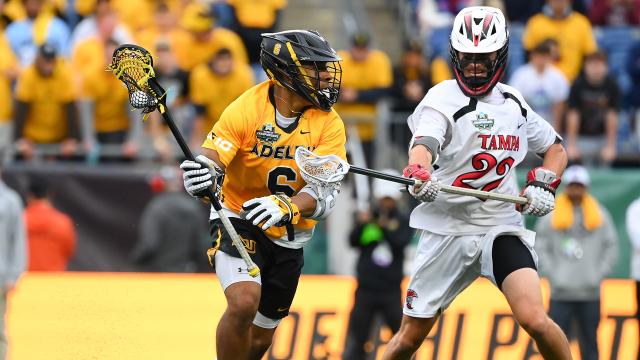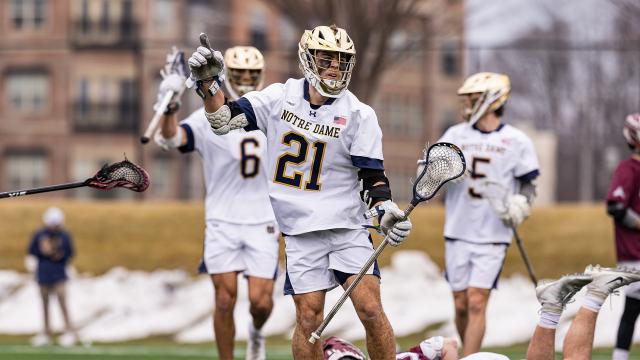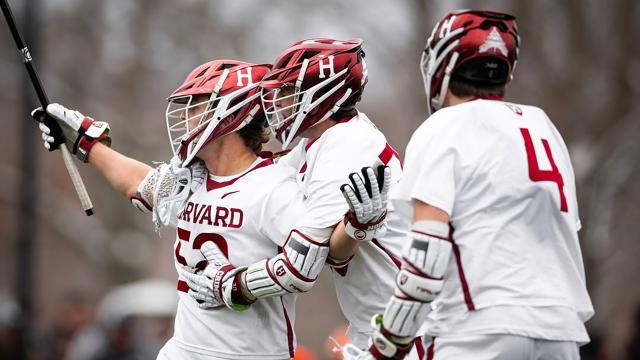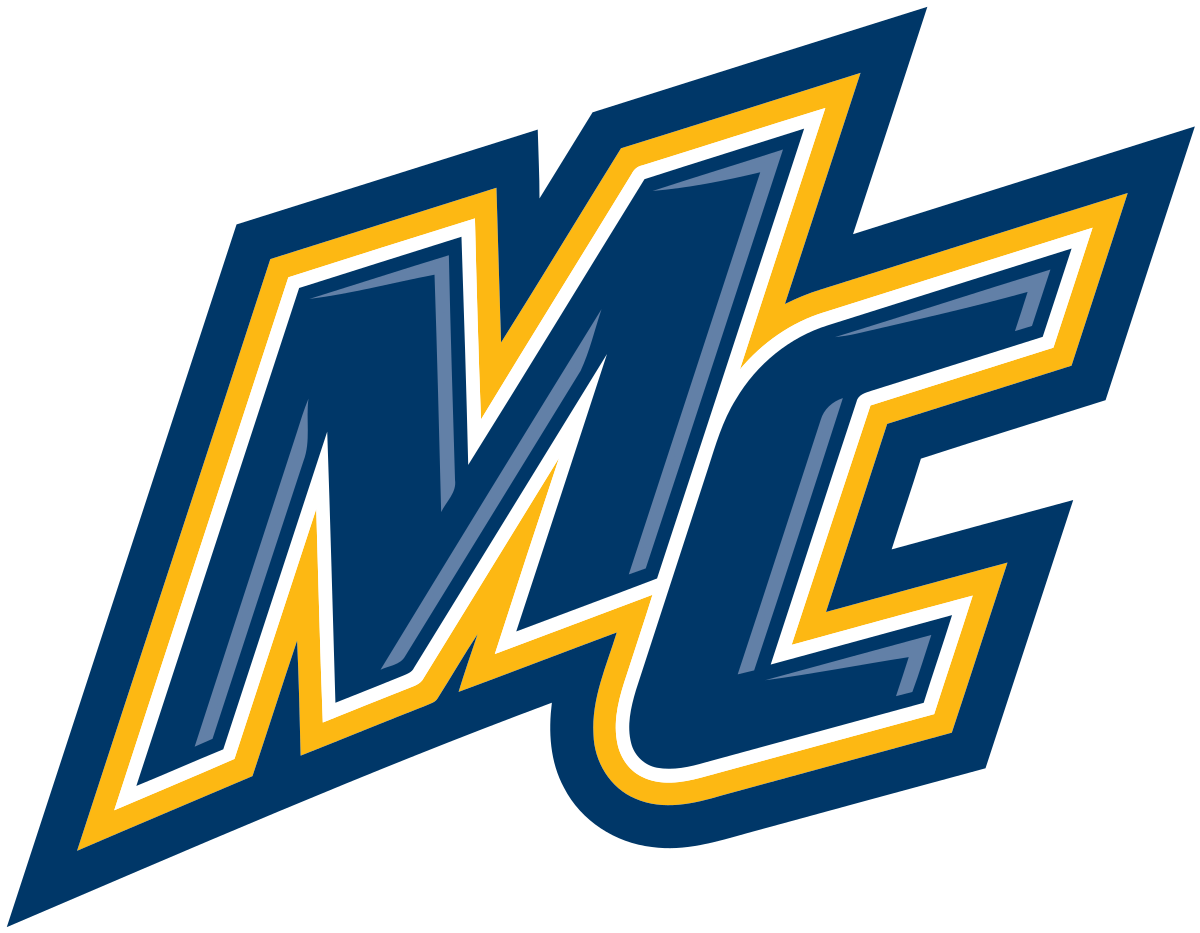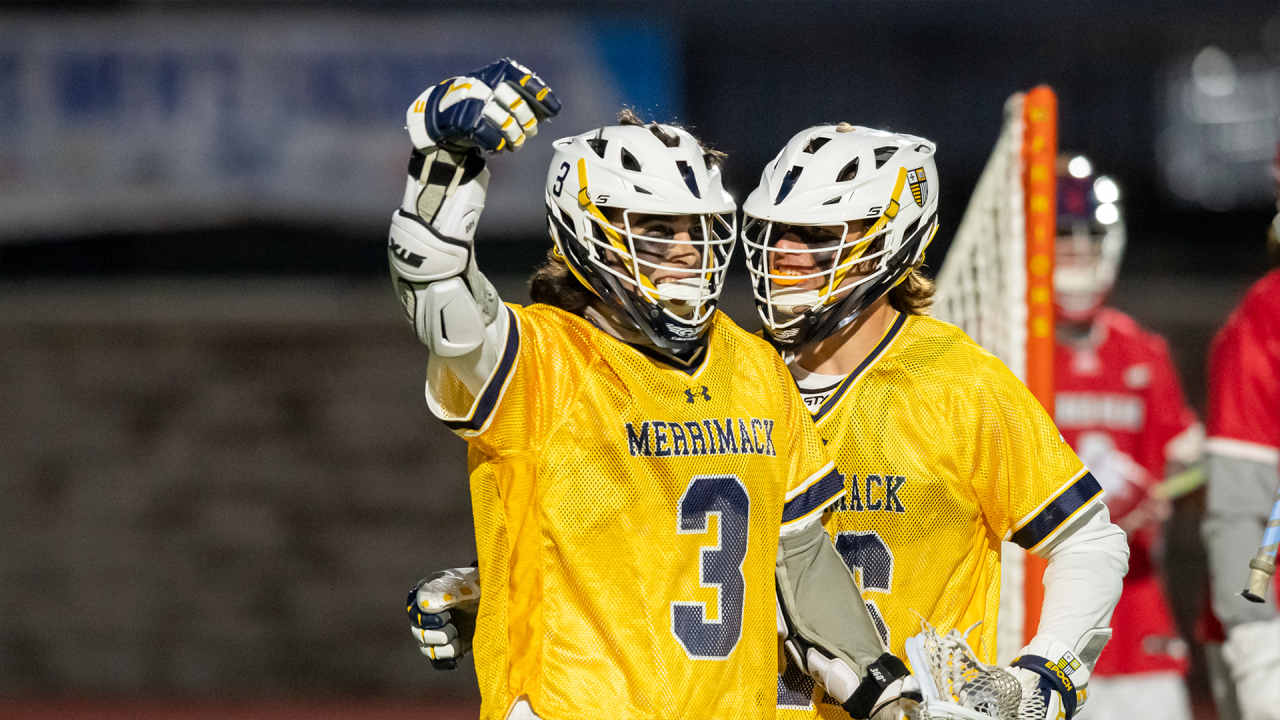
Finally Eligible for Postseason, Merrimack Starts Season Strong
The NCAA’s euphemism of choice for describing the four years schools spend moving between divisions is “transition period.”
In effect, it can be a lot more like the term Merrimack coach Mike Morgan prefers: Probation.
Call it what you will, but the impact is the same. The Warriors won Division II championships in 2018 and 2019, moved up to Division I and were ineligible for the postseason the last four springs.
This year is different. Finally. Merrimack can once again be part of the NCAA tournament conversation as it chases an America East title in the coming months.
“Just because we’re off probation doesn’t mean it’s just going to happen,” said Morgan, whose team plays host to Sacred Heart on Saturday. “You have to put in more work than you put in before, and I think the guys are learning that this year. You can’t just ride the emotion of, ‘Hey, we can play in the playoffs.’ You still have to go to win. You still have to have good practices.”
The earliest of early returns were promising for the Warriors, who had control throughout the second half of a 14-10 defeat of Bucknell in Saturday’s season opener. Sophomore Jack Kolbe scored four goals in his first career start, and returning starters Jack Rooney (one goal, six assists), Kasey Mongillo (three goals) and Trace Hogan (one goal, two assists) had strong days.
It was the first game Merrimack played with any sort of potential to influence an immediate title chase in almost five years. But it wasn’t as if the Warriors — who played in the national title game in their final three Division II seasons and were a combined 35-4 over their last two — simply disappeared.
The former Northeast-10 power became an all-sports member of the Northeast Conference in 2020. When the NEC didn’t have enough teams to sponsor men’s lacrosse, the Warriors found a two-year home in the America East.
Next year, the school enters the Metro Atlantic, the school’s fourth men’s lacrosse home in seven seasons. But repeated conference hopscotching was still far in the future when a program accustomed to winning big didn’t have a big prize to play for.
“The biggest part was having competitors who have won and been in playoff games in high school and now are in college and all the sudden you don’t have playoffs for four years,” Morgan said. “I think it takes a special group to show up every day and be that competitive. When you don’t have that light at the end of the tunnel, it’s just human nature to maybe lose focus or maybe not work as hard. To our guys’ credit, they’re a different group.”
In an odd way, the pandemic probably helped the program get through it. The 2020 season, which featured a victory at Michigan, was cut short, but it still counted as a year. So did the awkward COVID-influenced season of 2021, with its limited fall and truncated schedule. That left two years to navigate.
“We would have days where we’d have two weeks left in ’22 and had a mix-up in practice, a little bit of a fight,” Morgan said. “There’s a week left in the season, but I’m sitting here going, ‘I don’t love that, it’s not super-disciplined, but these guys are still competing at that level two and a half years into probation.’”
There were encouraging hints last year, too. Merrimack opened with a victory over Hofstra, and three weeks later hung around in a 13-9 loss at Denver. By the end of the year, the Warriors defeated eventual America East champ Bryant in April, then met Duke the following weekend.
That could serve as a dry run for what they’re aiming to do this spring: Return to the postseason at the earliest possible moment.
“As you keep winning, you don’t surprise anybody anymore,” Morgan said. “In the beginning, they didn’t want to lose to the new Division I team. Then it was, ‘OK, these guys are good, and we have to be ready for these guys.’ Now we’re at that level where when we’re winning the games we’re winning, it gets people’s attention, for sure. Our guys have to match that challenge.”
Patrick Stevens
Patrick Stevens has covered college sports for 25 years. His work also appears in The Washington Post, Blue Ribbon College Basketball Yearbook and other outlets. He's provided coverage of Division I men's lacrosse to USA Lacrosse Magazine since 2010.

Related Articles
